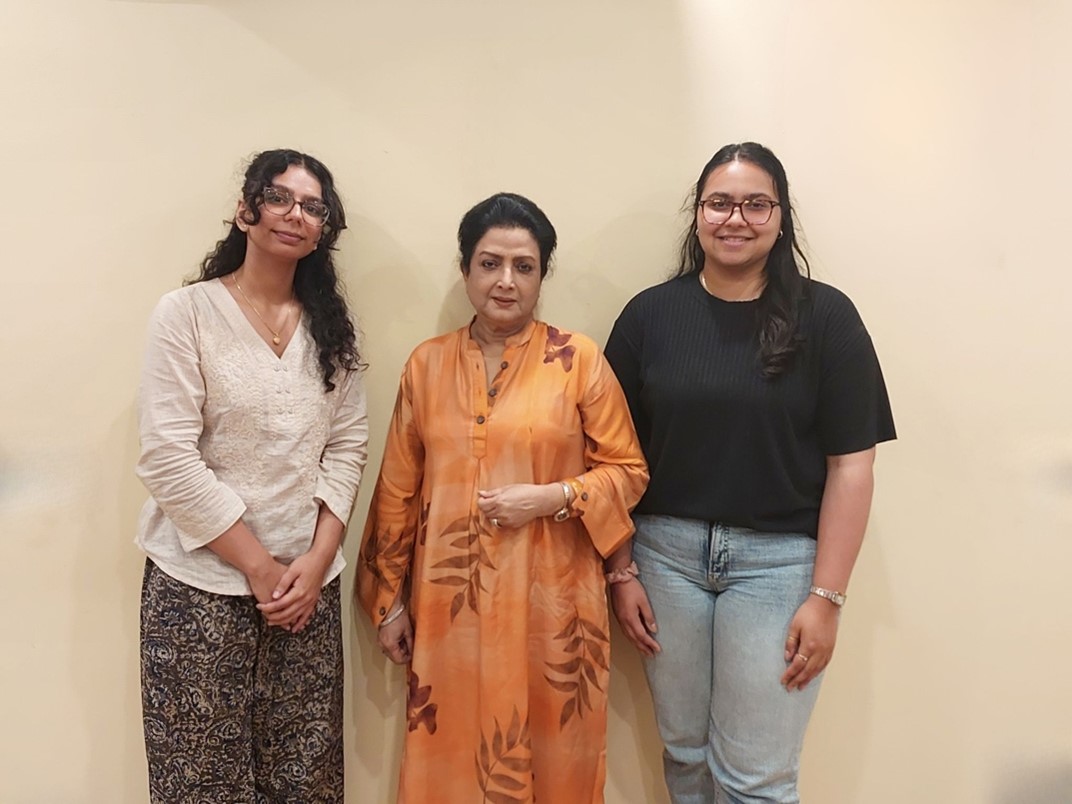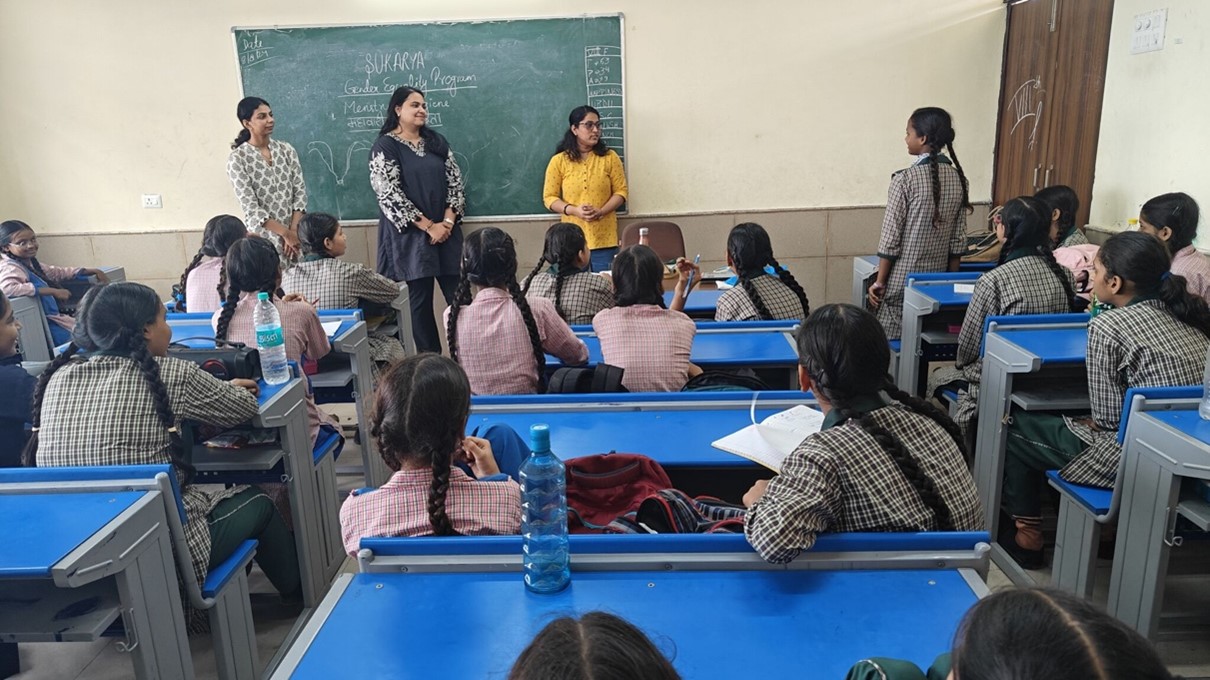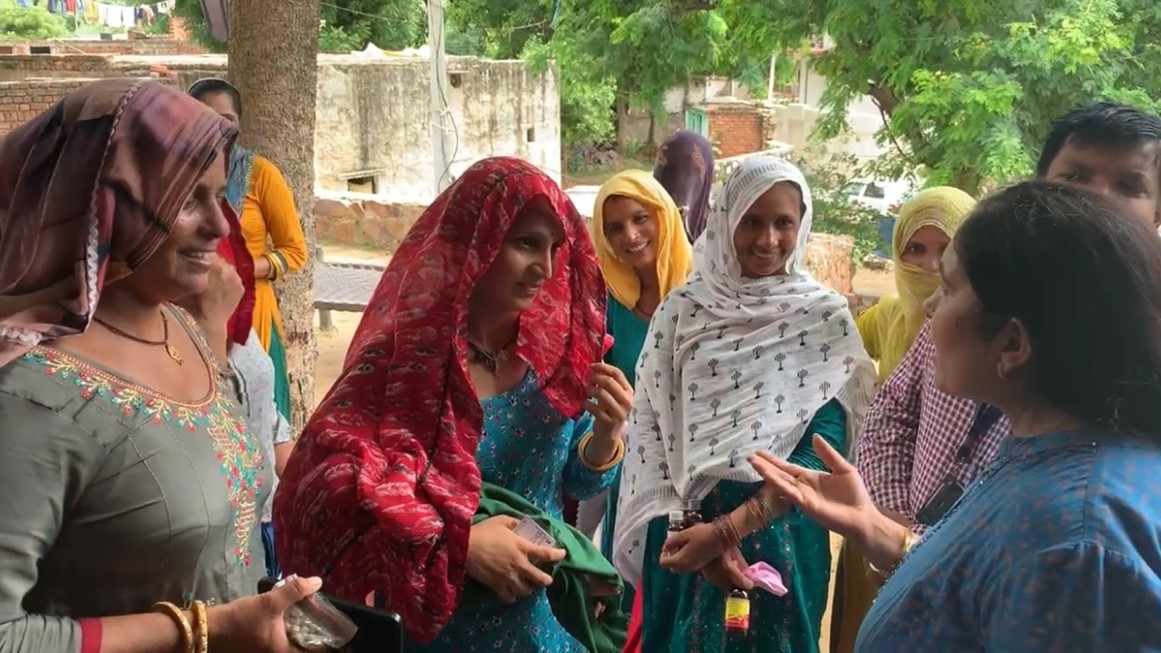April 25, 2025
Global WACh team supports Sukarya to build a data-driven adolescent health program in Rajasthan
In August 2024, team members from Global WACh at the University of Washington had the opportunity to visit India as part of a research partnership with Sukarya, a non-governmental organization focused on improving health outcomes and promoting gender equity in India’s slum communities.

Pictured from left to right: Simran Purewal (Student Assistant, UW), Meera Satpathy (Founder and Chairperson, Sukarya), Rishika Mohanty (Project Coordinator, UW)
Sukarya was founded in 1998 by its chairperson and health innovator Ms. Meera Satpathy, and strives to improve the well-being of women, children and adolescents through delivering critical health, equity and gender-based programs. The organization has benefitted more than 6 million people in over 650 villages and 120 slums in rural areas of Haryan, Rajasthan, Delhi and Gurugram. Since its founding, Sukarya has won many awards for its impactful work, and is ranked in the Top 10 Trusted NGOs in India by the Fortune Leadership Awards.
In 2024, Drs. Tickell and Wagner joined forces with Sukarya to win a Global Innovation Fund (GIF) supporting the creation of a bi-directional partnerships between UW and Sukarya. With this funding, the UW team has supported Sukarya in design as innovative Social Behavior Change Communication (SBCC) adolescent health program drive by local data. Members of UW were able to travel to New Delhi, India to conduct a data needs assessment for Sukarya’s SBCC program. This initiative aims to foster positive changes in knowledge, attitudes, and behaviors related to personal health, hygiene, nutrition, menstrual health, sexual health, family planning, mental health, and substance abuse among adolescents. The program’s goal is to empower adolescent with the knowledge and tools they need to make informed decisions about their health and well-being. The goal of the data needs assessment was to determine the optimal method of digital data collection to track participants changes in knowledge, attitudes, and behaviors.

UW team with Sukarya Program Officer during a school-based Gender Equity program session in Delhi, India
The UW team conducted site visits for four of Sukarya’s ongoing programs, including the Urban Slum Health Action (USHA) program, the Gender Equity Program, the Education on Wheels program and the Basic Health Services program. The Urban Slum Health Action (USHA) and Basic Health Services program consists of monthly health clinics held regularly for local communities, where health issues such as anemia and malnutrition are identified, detected, and treated. The Gender Equality Program, which addresses reproductive and sexual health education for adolescents, along with gender sensitization. The Education on Wheels initiative hosts a mobile education intervention to improve the reading and arithmetic ability of children who cannot physically reach schools.

Women attending a community USHA clinic, speaking with a Sukarya Program Officer
The ongoing partnership has illuminated the importance of Sukarya’s programs in addressing the complex health and social issues faced by marginalized communities in both urban slums and rural villages. The experience highlighted the significance of not only providing immediate healthcare solutions but also focusing on long-term behavioral and societal changes that can empower women and adolescents to build healthier and more informed futures. This work marks a promising beginning to a fruitful collaboration between UW and Sukarya, whose commitment and willingness to share their stories with the UW team made this experience truly impactful. Sukarya’s passion for improving women, adolescent and child health is the driving force behind the organization’s success in creating meaningful change and the UW team looks forward to strengthening this partnership in support of this important and timely work.